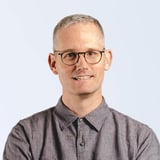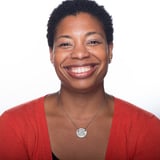Summary
Before taking the Continuous Discovery Habits course, we were already experimenting with Design Sprints to solve tough problems and build momentum—but the course gave us the structure and language to reinforce a deeper culture of learning across product and design. In this talk, I’ll share how I used DesignOps thinking to translate a course into company-wide behavior change. Building on our sprint foundation, I introduced new rituals, rhythms, and infrastructure to help teams shift from validation to true discovery—from asking “Will this work?” to “What might we learn?”
Key Insights
-
•
Discovery is often the first casualty under deadline pressure, but it’s essential for building the right product and reducing rework.
-
•
Without shared rituals and connective processes, learning remains invisible and doesn’t drive action across teams.
-
•
Design sprints can align cross-functional teams and surface assumptions but don’t create sustained discovery habits on their own.
-
•
Training teams on discovery methods is necessary but insufficient; teams also need scaffolding—lightweight, repeatable structures and rituals—to make habits stick.
-
•
Scaffolding provides temporary support, safety, and clarity so teams can practice discovery confidently without feeling buried by process.
-
•
Flexible approaches that focus on outcomes rather than prescriptive processes help teams adopt discovery in ways that fit their culture and work style.
-
•
Rituals like biweekly product reviews and discovery weeklies increase visibility, alignment, and feedback speed among product trios and stakeholders.
-
•
Embedding discovery as a continuous rhythm leads to faster decisions, fewer false starts, and more impactful feature launches.
-
•
Scaling discovery does not require added headcount or massive budgets but thoughtful scaffolding and alignment across teams.
-
•
Successful discovery habits evolve through iteration, retrospection, and adapting scaffolding to the unique needs of each team and organization.
Notable Quotes
"Discovery doesn’t usually come with a launch party or even its own Jira ticket, but it’s what turns speed into progress."
"When discovery is missing, teams might move fast, but often in the wrong direction."
"Hope is not a strategy, and mandates don’t build culture. What works is scaffolding."
"Scaffolding is the temporary structure that provides support, safety, and access while the real work happens underneath."
"Instead of prescribing a meeting, we focused on how people should feel at the end and what outcomes to achieve."
"We built scaffolding that teams could climb, not cages they had to sit in."
"Discovery habits don’t stick because of training. They stick because of scaffolding."
"Start small, add scaffolding, and let momentum do the rest."
"The role of leaders is to provide just enough guidance so teams don’t feel lost but avoid bureaucracy."
"Teams started shipping multiple new features every few weeks, not because they cut corners, but because of fewer false starts."
Or choose a question:
















More Videos

"Now we’ve evolved into customer experience, working horizontally across all silos with service design."
JJ KercherA Roadmap for Maturing Design in the Enterprise
June 15, 2018

"We use a holistic methodological approach combining explicit and implicit quantitative methods to fully get the user's perspective."
Daniela Magaña Flores Ariane Rahn Jeff Ephraim BanderAhead of Competition: Learn What UX Benchmarking Can Do for Your Business Today
March 10, 2022

"My dog is tiny but had a huge impact – that’s how small research ops can have big impacts on the team."
Saskia LiebenbergStart Small for Big Impact
May 15, 2019

"We have to shift from mechanistic linear thinking to complex systems thinking."
Ariel KennanCivic Design in 2022
January 13, 2022

"This community doesn’t want to hide its secrets because we’re all too new to want to do that."
Peter MerholzThe Mysterious Case of the Missing UX Career Path
August 25, 2022

"You have to treat the design system like a product that everyone in your organization will use."
Nathan CurtisBeyond the Toolkit: Spreading a System Across People & Products
June 9, 2016

"Tools are great, but they do not solve all problems; training and understanding the why behind accessibility is essential."
Saara Kamppari-MillerDesignOps for Inclusive Design and Accessibility
May 26, 2022

"Meaningfulness is linked directly to what your organization cares about in terms of goals and priorities."
Landon BarnesAre My Research Findings Actually Meaningful?
March 10, 2022

"A high-level roadmap with now, next, later helped us show we had a plan but kept flexibility for changing priorities."
Dr Chloe SharpUsing Evidence and Collaboration for Setting and Defending Priorities
November 29, 2023
Latest Books All books
Dig deeper with the Rosenbot
In what ways can scaffolding serve as a leadership tool within service design?
In what ways can organizations use scaffolding to overcome bureaucratic constraints in service design?
How do competing AI agents within an enterprise environment require new design approaches for prioritization and control?
















